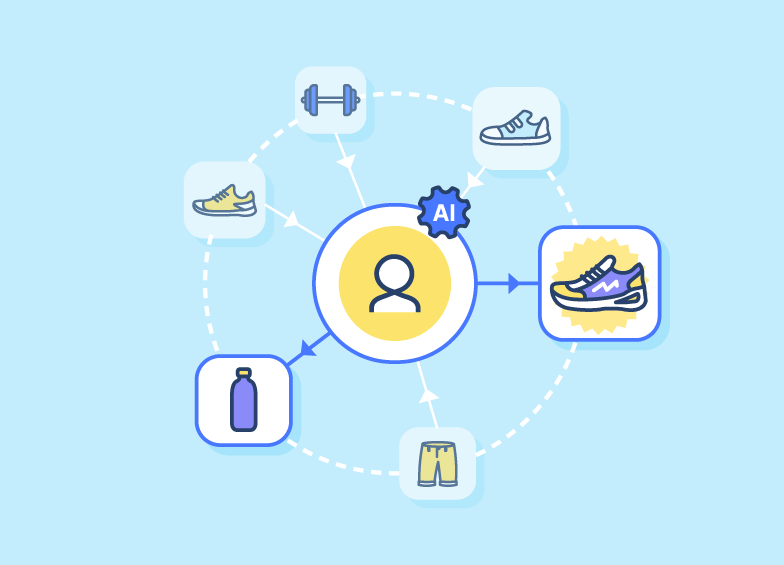Customized upselling and cross-selling strategies to build customer loyalty


Category: Loyalty
In an ultra-competitive market, brands can no longer restrict themselves to acquiring new customers. Retaining existing customers is just as crucial. Companies are constantly looking for ways toincrease sales and maximize the value of each customer. This is where personalized upselling and cross-selling strategies come into play. By using these techniques intelligently, you can not only meet your customers' specific needs and preferences, but also strengthen their loyalty by offering them an unforgettable shopping experience. In this article, we'll explore how to implement such strategies to build customer loyalty and increase your revenues.
The first step to building customer loyalty is to get to know them well. Every customer is unique, with specific needs and preferences. By gathering demographic and behavioral data, as well as analyzing previous sales information, you can create detailed customer profiles. This will enable you to understand their purchasing motivations, product preferences and buying habits. Analyzing and exploiting this customer data offers considerable competitive advantages for brands. Classifying products according to their performance, understanding customer preferences, analyzing purchases, integrating social network listening... As such, using AI makes the most of all the information collected. By leveraging the power of AI, you increase the analysis and understanding of your customers' profiles.
With this information and these enriched profiles, you can tailor your upselling and cross-selling strategies to meet their individual needs.
Upselling consists in offering a customer a product or service of higher quality than the one they are considering buying. The key to successful upselling lies in personalization. Using the information you've collected, you can recommend higher-end products that match each customer's specific interests and needs. For example, if a customer has bought an entry-level camera, you can suggest a higher-end camera to enhance their photography experience. The idea is to show the customer that you understand their needs and want to offer them a complete, tailor-made solution.
Cross-selling involves offering customers products or services related to those they have already purchased. This approach can be highly effective in increasing the average value of orders. Once again, personalization is the key to success. Using customer data, you can recommend products or services that match the customer's previous purchases. For example, if a customer has bought a pair of running shoes, you can suggest sports socks or a cell phone armband. The aim is to make the customer's life easier by offering products that complement those they already own.
Personalizing upselling and cross-selling strategies has a number of advantages that contribute to customer loyalty:
AI plays a crucial role in implementing personalized upselling and cross-selling strategies. Data analysis tools and CRM software can help you collect, organize and exploit customer information efficiently. Combined with AI, CRM becomes intelligent and opens up a whole new world of possibilities: you can track your customers' buying behaviors, preferences and habits in real time, enabling you to personalize your recommendations even further.
Thanks to the use of artificial intelligence and machine learning, your marketing becomes predictive. You can predict your customers' future needs. By analyzing past purchasing patterns, you're able to anticipate which products or services are likely to be of interest to each customer. For example, using recommendation algorithms, you are able to suggest items similar to those the customer has previously purchased, or products popular among customers with similar preferences. This boosts the effectiveness of your upselling and cross-selling strategies by offering relevant, personalized recommendations.
To maximize the effectiveness and personalization of your upselling and cross-selling strategies, it's important to measure and analyze results. Track conversion rates, revenue from additional sales and customer satisfaction. Identify which products or services are working best, and which need adjustment. Using this information, you can fine-tune your strategies and make continuous improvements.
Building customerloyalty through personalized upselling and cross-selling strategies is essential for companies seeking to maximize the value of each customer. By understanding each customer's specific needs and preferences, using AI to personalize recommendations, you can deliver exceptional shopping experiences that build customer loyalty.
By adopting a customer-centric approach and offering tailor-made solutions, you can create a solid base of loyal customers who will return again and again. By putting these personalized upselling and cross-selling strategies into practice, you can turn your customers into brand ambassadors.
By offering added value and facilitating the purchasing process, companies can maximize their customers' lifetime value and ensure their long-term growth. Thanks to advanced technologies, effective personalization is now more accessible than ever, offering brands a valuable opportunity to build customer loyalty.